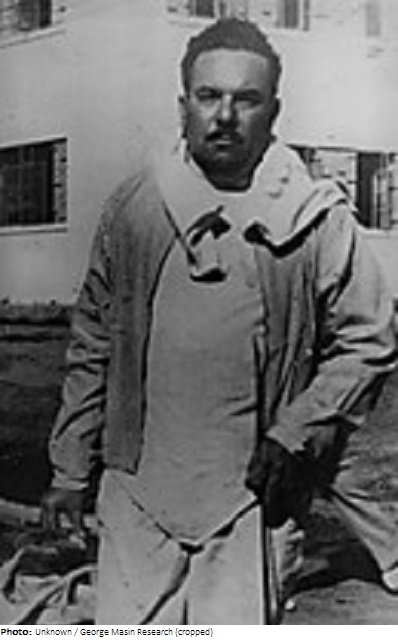
| Roles | Competed in Olympic Games |
|---|---|
| Sex | Male |
| Full name | Jorge•Agostini Villasana |
| Used name | Jorge•Agostini |
| Born | 5 February 1910 in Mayarí, Holguín (CUB) |
| Died | 9 June 1955 (aged 45 years 4 months 4 days) in La Habana (Havana), Ciudad de La Habana (CUB) |
| NOC |  Cuba Cuba |
Jorge Agostini entered the Mariel Naval Academy at age 16, graduating as an ensign in 1931. He later fought for the US Navy and in 1937 went to Spain where he fought on the side of the revolutionaries in the Spanish Civil War, eventually reaching a rank of Colonel Commander in the Cuban Navy. He served in the Cuban Navy during World War II and later became a professor of artillery at the Mariel Naval Academy. After World War II, he was able to concentrate on his sports career, winning individual and team championships in both foil and épée at the 1946 Central American and Caribbean Games in Baranquilla, Colombia. In 1950, he won a silver medal in the team foil at the same event. Agostini won two fencing bronze medals at the 1951 Pan American Games, in team foil (with Armando Barrientos, Abelardo Menéndez, and the non-Olympian Miguel Olivella) and team épée (with Carlos Lamar, Roberto Mañalich, and the non-Olympians Roberto García and Miguel Olivella).
In the early 1950s Agostini joined the Cuban Revolutionary forces against Cuban President Fulgencio Batista. Because of his activities he was exiled from Cuba but secretly returned. On 9 June 1955 Batista’s forces found him and brutally killed him, with an autopsy revealing that he had 21 bullet holes scattered throughout his body.
| Games | Discipline (Sport) / Event | NOC / Team | Pos | Medal | As | |
|---|---|---|---|---|---|---|
| 1948 Summer Olympics | Fencing |  CUB CUB |
Jorge Agostini | |||
| Foil, Individual, Men (Olympic) | 7 p5 r1/4 | |||||
| Foil, Team, Men (Olympic) | Cuba | |||||
| Épée, Team, Men (Olympic) | Cuba | |||||
| Sabre, Individual, Men (Olympic) |